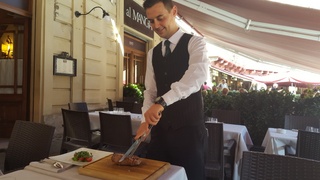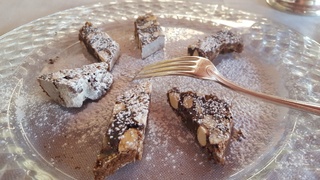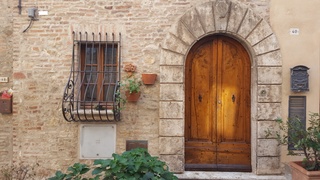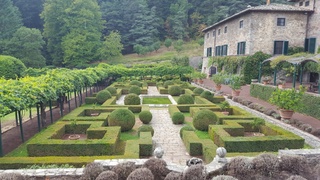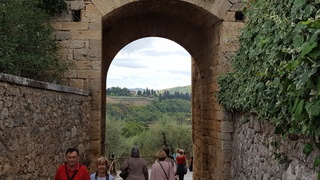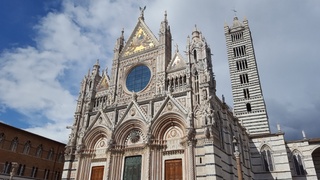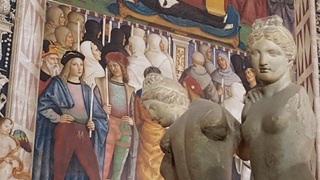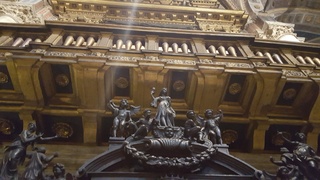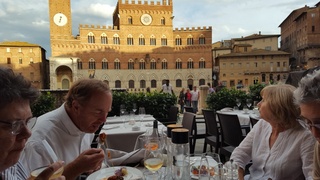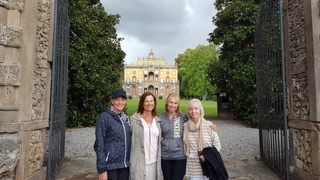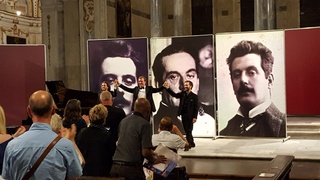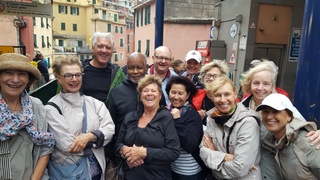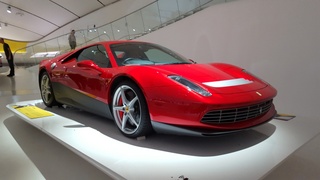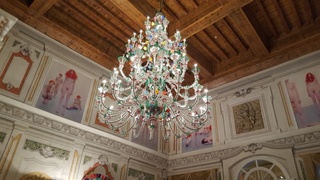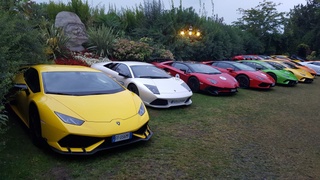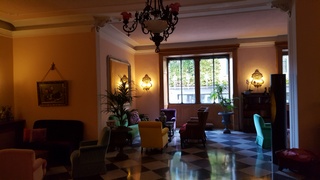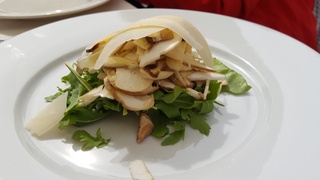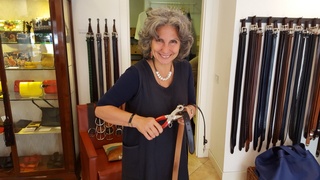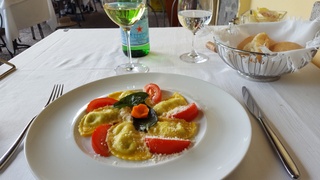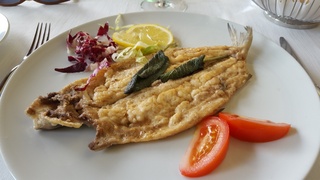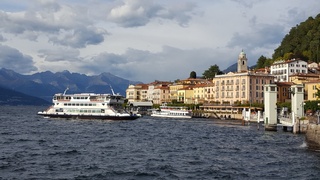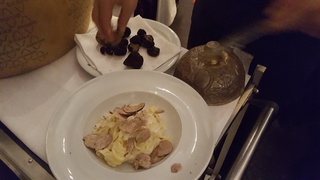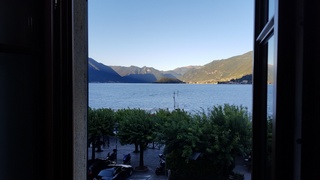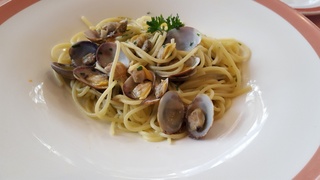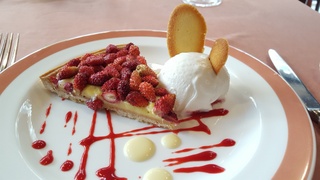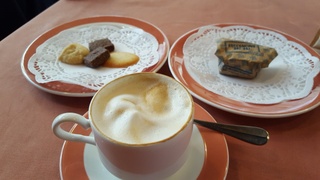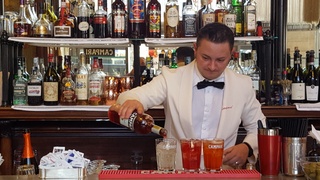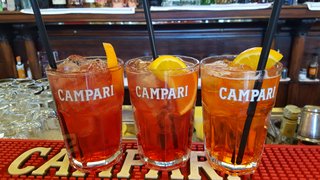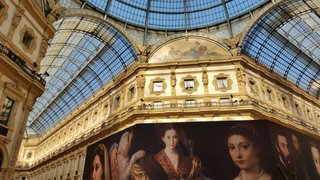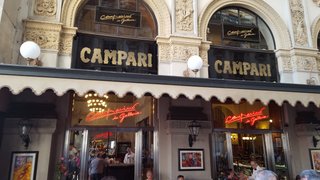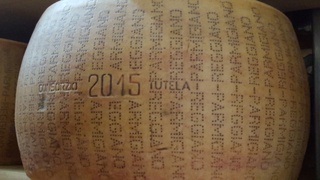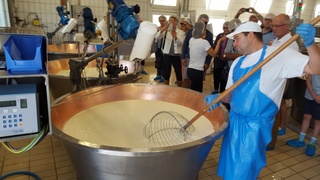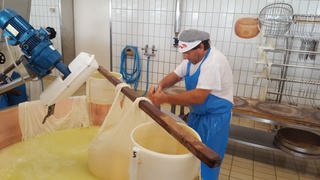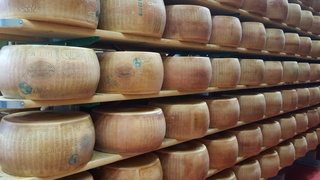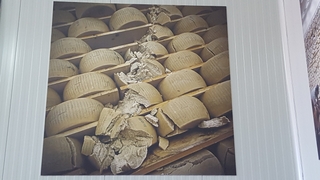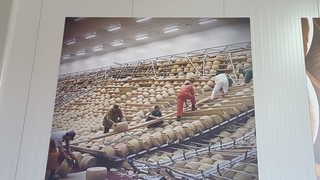
Newsletter - October 2017
Greetings from Robbi and Jim
A warm welcome to all of the members of our Aroma Tours Newsletter in over 30 countries around the world.
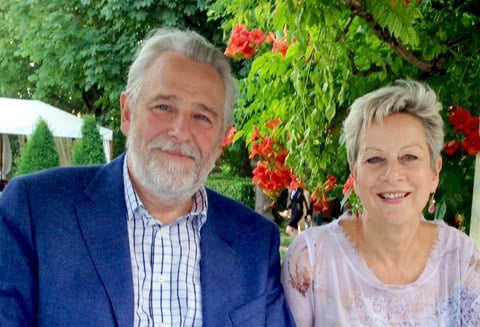
Robbi and I are now back home in our lovely little cottage in south eastern Australia enjoying the awakening of spring, with a riot of colour in the garden and newly opened leaves on the trees. There are also lots of parrots and other birds busily feeding and nesting and we have had a visit from our local kangaroo mob to say welcome back!.
It is so nice to be home again after almost three months of wonderful adventures in Spain, Provence, Italy and Bali with time to reflect on the many delightful moments we have shared with our Aroma Travellers.
This year is our most successful tour season in our 23 years of Aroma Tours and we are thrilled to see that it looks as though 2018 will be even better with all of the tours for next year going wonderfully well!
We feel truly blessed to be able to share our passion for the places and experiences that we love with wonderful people from around the world. As we start to throttle back on the number of tours we are offering it becomes even more poignant for us.
- For more details, prices and itineraries we invite you to visit our tour information page and if your would like to reserve your place this can be done via our make a reservation page.
Aroma Travellers Our Thanks
Without doubt, the main reason that we have grown and flourished over the years, is the on-going support we have received from our past Aroma Travellers and we are thrilled to see that they continue to make up over 70% of our guests!



 |



 |


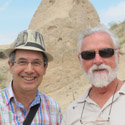
 |

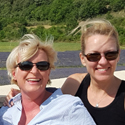

 |
- The time spent with you on the Provence tour, was delightful. My heart has definitely fallen in love with France, the peoples, food and country. Your kindness and sincerity in taking care of all the details of the Provence tour allowed me to relax into the time and space of being present to myself. A reacquaintance of sorts, to the simple joys in life! ~ Thaea Harrison, Calgary Canada
- Thanks for a wonderful tour of Tuscany - as "Newbies" it was great! We'll definately see you again on another tour. ~ Mike and Marianne Farage, Southport USA
- I arrived back home earlier this week after an absolutely delightful time in France. Thank you both so very much for your part in making my dream a reality. Essential Provence was just so fantastic. It more than lived up to my expectations. I am in awe of you both. The dedication and attention to detail that you put into the organisation of the Tour certainly did not go unnoticed. I can only imagine the many hours of back ground work that you put into the finished product, and the enthusiasm and your love of your work certainly has paid off. I have been singing your praises. I can see why many of your clients re-book! ~ Ann Doudle, Port Lincoln Australia
-
Italy was just so full of everything...different from Provence... but so wonderful in every way. We hope to join you on
another trip, maybe 2009!?It's like travelling with friends when we go with you and you always pick out some pretty amazing
places. I still tear up when I look at the picture of the library ceiling in the Siena Cathedral...that was probably the
highlight of Tuscany for me. But, it was all fantastic!!!
~ Mary Ann & Wayne Angleberger, Mount Solon USA
We would also like to give our heart-felt thanks to all of you who continue to support us with your kind words and referrals.
Robbi and I also greatly appreciate the wonderful words of thanks we have received over the years and have added a new compilation of Guest Comments to our site.
Photos of our Aroma Tours Adventures in Italy
As promised here are some of the photos we have taken in Tuscany and northern Italy this year to give you a sense of the lovely places and experiences we shared with our guests during our Aromas of Tuscany and Flavours of Italy tours this last September as we explored the delights of the "Dolce Vita".
We invite you to join us next year to explore some of these wonderful places, people and experiences with us and take your own "selfie" memories.
- For more details please visit our tour information page and if you would like to share a wonderful adventure with us in beautiful Italy, you can reserve your place via our make a reservation page
The Story of Campari
In Italy there is a long tradition of drinking a bitter aperitivo to stimulate digestion before a substantial meal.
One of the most famous is Campari which is an alcoholic infusion of more than 60 natural ingredients including bitter herbs, aromatic plants, barks and fruit peels with a distinctive red colour, originally derived from ground cochineal bugs ( a common natural food colouring ).
Gaspare Campari started his career as an apprentice licoriste ( drink maker ) in 1842, aged fourteen, at the Bass Bar located in the shadow of the main cathedral of Turin. Around this time, bitter aperitivi and digestivi were all the rage in Europe and once Gaspare had learnt the art of making infusions and macerations he quickly gained a reputation for his own creations.
He continued to live and work in Turin until in 1862, after tragically loosing his wife and two children to cholera, he re-married and moved to Milan where, with his new father-in-law's help, he set up a small cafe in the Coperto dei Figini, right next to the world's largest Gothic Cathedral.
Not long afterwards the Milanese city fathers decided that the Coperto dei Figini would be demolished to allow for the construction of the magnificent Galleria Vittorio Emanuelle II. Gaspare siezed on this opportunity and managed to have his cafe located at the gallery entrance in return for the inconvenience he would suffer. From that point on his fortunes flourished. The rich and famous began to patronize his cafe and the aperitif he'd created, which he simply named "Campari" after himself, became the most popular drink in Milan and then throughout the region.
After Gaspare's death in 1882 the Campari tradition was continued by his son Davide who's marketing skills brought Campari to world wide renown: Davide Campari's name appears on every bottle of Campari to this day.
Campari is typically mixed with orange juice or carbonated water and is also used to create pre-dinner cocktails that stimulate the appetite. One of the most popular being the classic Negroni cocktail:
- Blend together equal parts of Campari, gin and Cinzano Rosso then serve over ice with an orange peel garnish.
Our Current Booking Status
Reservations for our 2018 season are going wonderfully well with most of our tours already half full, a 150% increase in new enquiries and more past guests than ever confirming that they will be joining us once again next year.
The current booking status for our 2018 season at the time of this newsletter is:-
| List of Tours for 2018 | ||
| Flavours of Spain | 21 - 28 May 2018 | 9 vacancies |
| Spanish Gourmet Pilgrimage | 28 May - 4 June 2018 | 7 vacancies |
| Provence Aromatic Sojourn (special event) | 15 - 22 June 2018 | 9 vacancies |
| Heart of Provence | 25 June - 2 July 2018 | 10 vacancies |
| Essential Provence | 2 - 9 July 2018 | 7 vacancies |
| Aromas of Provence | 13 - 20 July 2018 | 8 vacancies |
| Flavours of France (invite only) | 23 - 30 July 2018 | SOLD OUT |
| Aromas of Tuscany | 4 - 11 September 2018 | 11 vacancies |
| Flavours of Italy | 11 - 18 September 2018 | 9 vacancies |
| Bali Women's Retreat | 8 - 15 September 2018 | 2 vacancies |
| Bali 30th Anniversary Retreat (invite only) | 17 - 24 September 2018 | 3 vacancies |
- For detailed information about any of our tours please visit our tour information page and if you would like to join us please visit our make a reservation page.
- It is our pleasure to assist you with any questions you may have and we invite you to get in touch with us at info@aroma-tours.com.
Please note
- There will only be one Bali Women's Retreat next year and as there are now only 2 vacancies remaining, please get in touch with us soon if you would like to join Robbi and Sally for this beautiful week.
- Our up-to-the-minute booking status is available via our calendar page
The King of Cheeses
The generic name "Parmesan" is most commonly used to describe industrial, mass produced, hard textured cheeses manufactured in vast mechanized plants.
However, the "true" Parmesan cheese, more correctly known as "Parmigiano Reggiano" [ The King of Cheeses ] is only made in a precise "zona typica" in central Italy which includes the provinces of Parma, Reggio Emilia and Modena, Mantua on the right bank of the Po river and Bologna on the left bank of the Reno river.
There, in 650 small factories called "casellos", skilled cheese makers use a traditional method that has changed little since the 13th century to produce between 4 to 10 cheeses a day per castello. It is very much a matter of quality rather than quantity!
To make each 35kg "wheel" of Parmigiano Reggiano requires 560 litres of highest quality whole milk delivered fresh, each morning and evening from nearby dairies; un-homogenized and with its natural flora intact. The evening milk is allowed to rest overnight in trays and the morning milk is used after it has rested for about one hour.
First a portion of the naturally accumulated cream is skimmed off and the evening and morning milks are mixed together in a copper kettle shaped like an inverted church bell. Then an aliquot of natural whey [ which contains lactobacilli ] is added and the milk is slowly heated to 33°C with constant stirring to cause partial fermentation and to raise its' acid content.
The heat is then turned off and natural rennet is added, after which the mixture is allowed to coagulate for 12-15 minutes to form curds. The curds are then broken up manually using a sharp-edged tool known as a "spino" [ thorn-bush ] to create fragments the size of wheat grains which are "cooked" by slowly heating them to 45°C, followed by rapid heating to 55°C.
The batch is then cooled to allow the cooked granules to precipitate in the bottom of the kettle and after about half an hour the cheese is scooped into a sieve-cloth with a wooden paddle. It is then placed inside a circular mould called a "fascera" which gives the cheese its characteristic "wheel" shape.
After draining for a few hours the cloth is removed and the freshly made cheese is branded with the words "Parmigiano-Reggiano" to designate its pedigree. It will remain in the fascera for several days resting on its' flat ends with frequent turning until set, after which it will be immersed in brine for 20-25 days.
The final stage is maturation, which takes place in a temperature controlled storehouse called a "cascina" where the cheeses are stored for approximately 1 year on massive wooden shelves with regular brushing, turning and checking. Each cheese is graded and a wheel is designated ready for market when it makes a characteristic vibration when struck with a small hammer.
The temperature controlled storage warehouses for the cheeses are huge and the contents are a treasure worth many millions of Euros.
Prologue:
Several years ago a significant earth tremor was experienced in the Po valley region and as a result a great deal of damage was done to these cheese treasure houses.
The pictures taken at the time say it all:-
We enjoy a fascinating visit to a Parmigiano Reggiano cassello during our Flavours of Italy Tour and it is an awesome experience indeed.
Provence is Calling
Of all the regions that we visit, Provence has a special place in our hearts. It is where our Aroma Tours began over two decades ago and where we first fell in love with another land.
Returning to our second home in Provence is always a delight and it is our passion to share and explore the many wonders and hidden gems of this beautiful region during our Heart of Provence, Essential Provence and Aromas of Provence tours.
Robbi and I hope that you will be able join us next summer in Provence to share a wonderful journey together.
"To be in Provence is to be in a joyful dream full of beauty and delight." ~ Jean Moreau
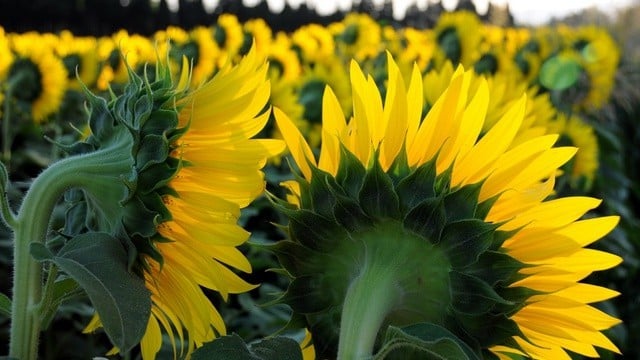
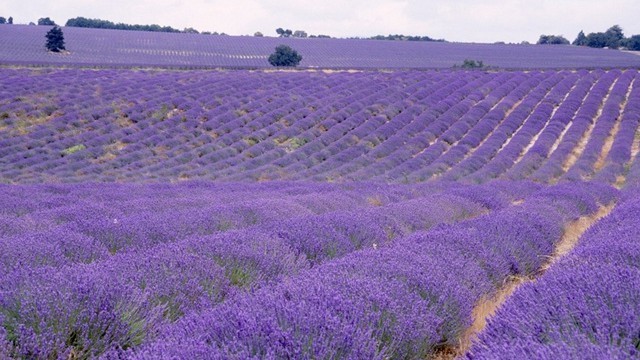
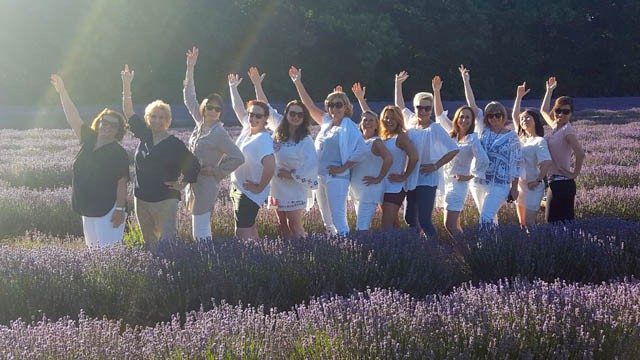
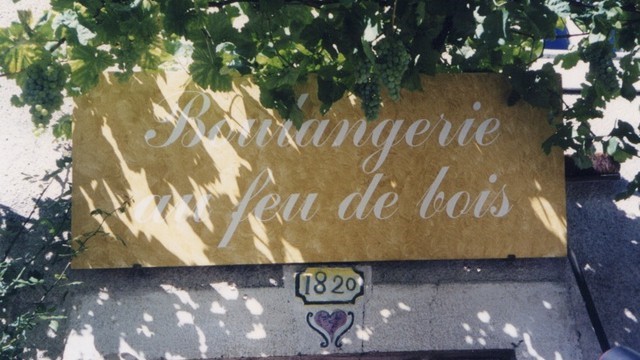
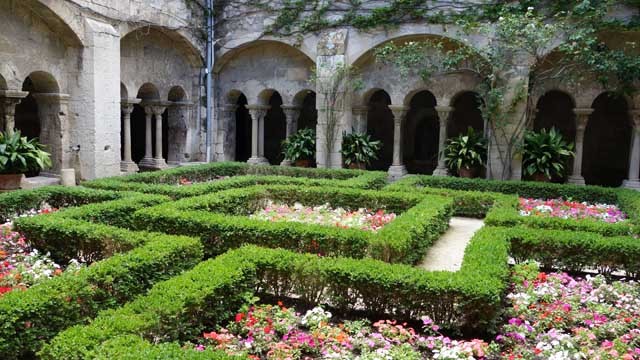
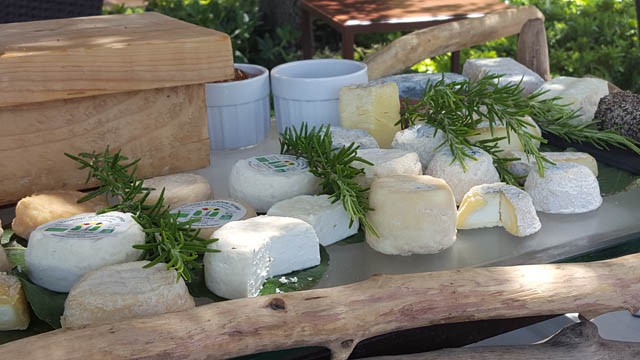
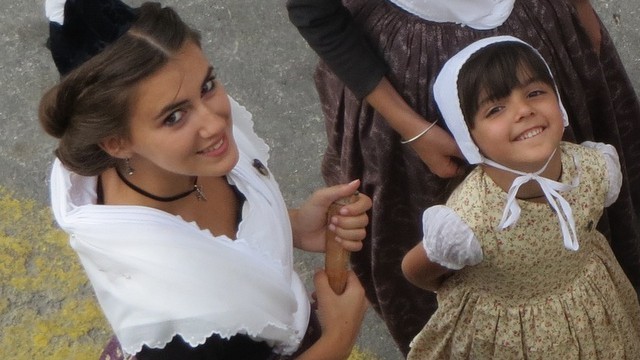
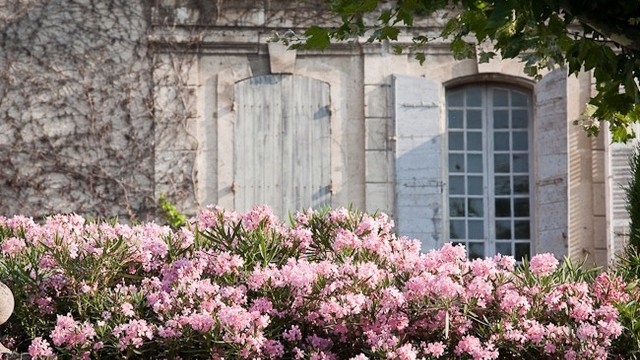
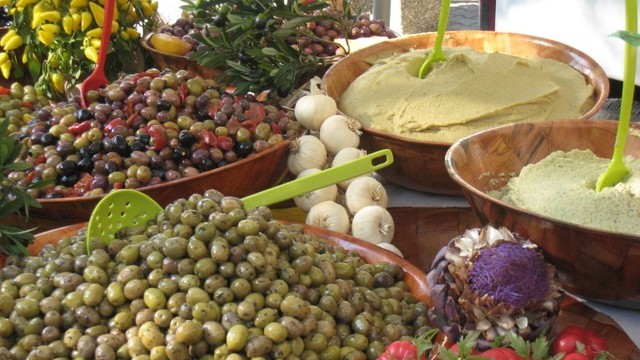
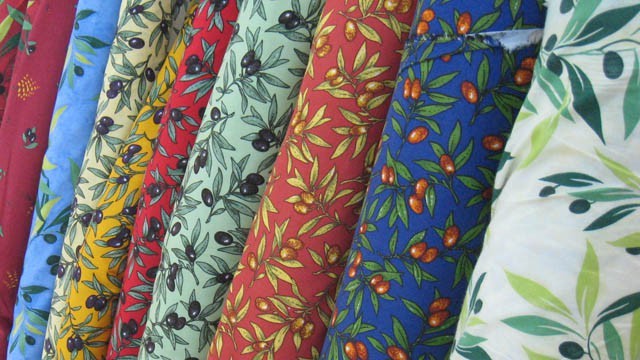
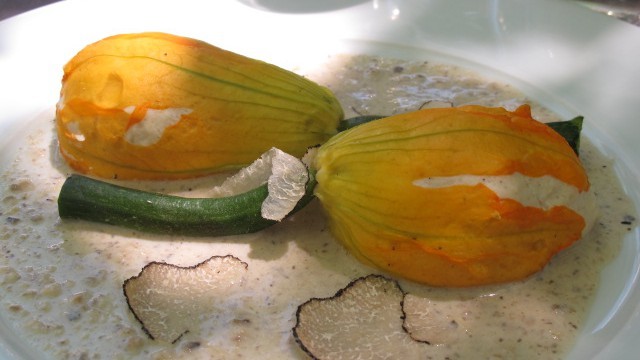
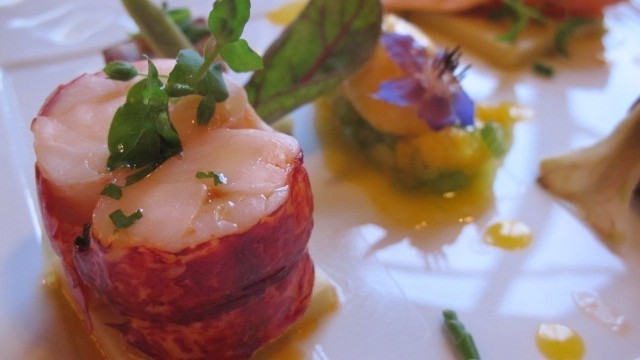
Travelling Solo in a Group
As well as couples and friends travelling together, we are regularly joined by solo travellers - mostly women, who appreciate being able to journey with liked minded people from around the world, without the need to do all the planning and take on the daunting task of touring by themselves.
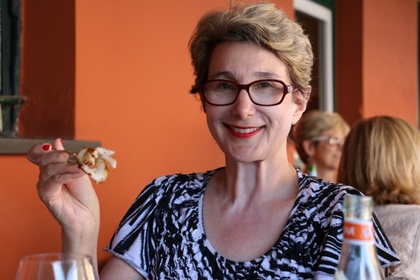
Joining one of our small group tours is easy and we have already made all of the arrangements on your behalf to ensure that you have a delightful, stress-free holiday with the focus on having fun.
Having a ready-made group of friends to travel with, and us to take wonderful care of you is the way to go!
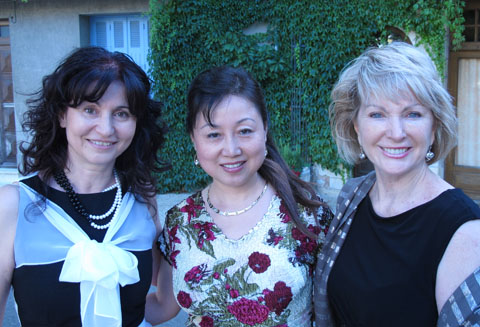
We have carefully crafted off-the-beaten-path itineraries that are the perfect balance of structure, experiences, details and free time to enjoy in your own way.
There have been a significant number of guests over the years who and have joined us multiple times, some of whom have become dear friends.
- Mona Smith, pictured at the beginning of this snippet, holds the record for the most tours attended by a solo traveller - she has journeyed with us 10 times and next year will be her 11th!
- Susan Troxell from NYC is a close second and has joined us 9 times.
Our Invitation
Robbi and I look forward to welcoming you to one of our delightful tours or retreats as we continue moving towards our retirement in the next few years.
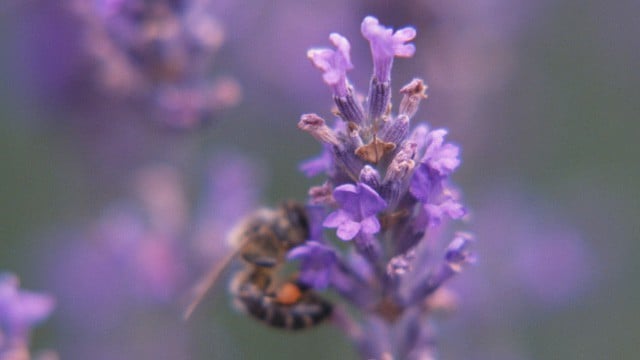
- For detailed information about any of our tours please visit our tour information page and if you would like to join us please visit our make a reservation page.
- As always if you have any questions or if you would like us to assist you personally with advice about your travel arrangements or with any other details please contact us at info@aroma-tours.com
Warmest regards,
Jim and Robbi
